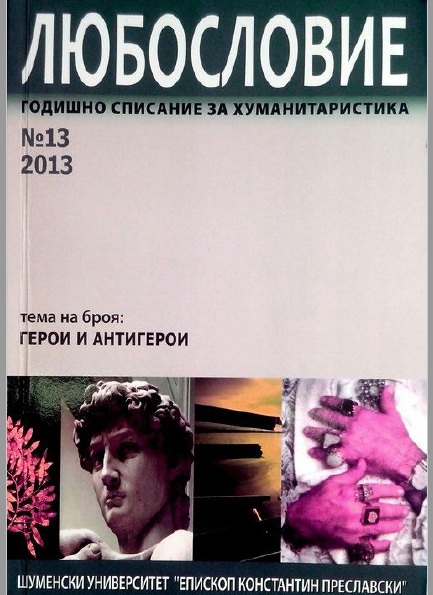Герои, памет и паметници (Противоположните преминавания на Дунав от Христо Ботев и Стефан Стамболов през 1876 г.)
Heroes, memory and monuments (Hristo Botev and Stefan Sambolov cross the Danube in opposite directions in 1876)
Author(s): Yuriy ProdanovSubject(s): Civil Society, Bulgarian Literature
Published by: Шуменски университет »Епископ Константин Преславски«
Keywords: heroes; Revival; collective memory; national ideal; Hristo Botev; Stefan Stambolov
Summary/Abstract: The article analyses the mechanisms of turning a person into a hero. It is based on the idea that the act of turning a person into a hero is not simply an extreme act of individual effort going beyond the norms of daily life. What is important is that this act be publicly “noticed”, acknowledged as such and most importantly - included in what we call collective memory. The field of research has identified the so called „riotous decade” (1868 - 1878) in Bulgarian history - times that have witnessed the outlining of an insurmountable abyss between two political views about the future of the national ideal and two clearly distinguished generations. In that silent opposition on one side is Petko R. Slaveykov and the texts created during that time. On the other side are the new leaders who took the decision for a riot in Gurgevo. Their personal decision would divide them into two groups - of heroes and survivors. From this perspective and based on publications in newspapers from the revival period and on data from the National Archives in Veliko Tarnovo, conclusions are made about what happened to two symbolic figures of that period - Hristo Botev and Stefan Stambolov.
Journal: Любословие
- Issue Year: 2013
- Issue No: 13
- Page Range: 66-74
- Page Count: 9
- Language: Bulgarian

